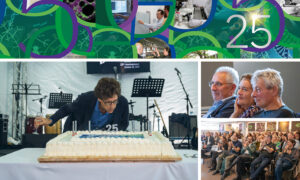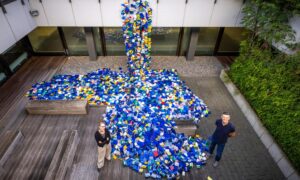
Diving into the world of science
EMBL Grenoble took part in a series of activities during the French Science Week, highlighting EMBL’s research and the TREC scientific expedition
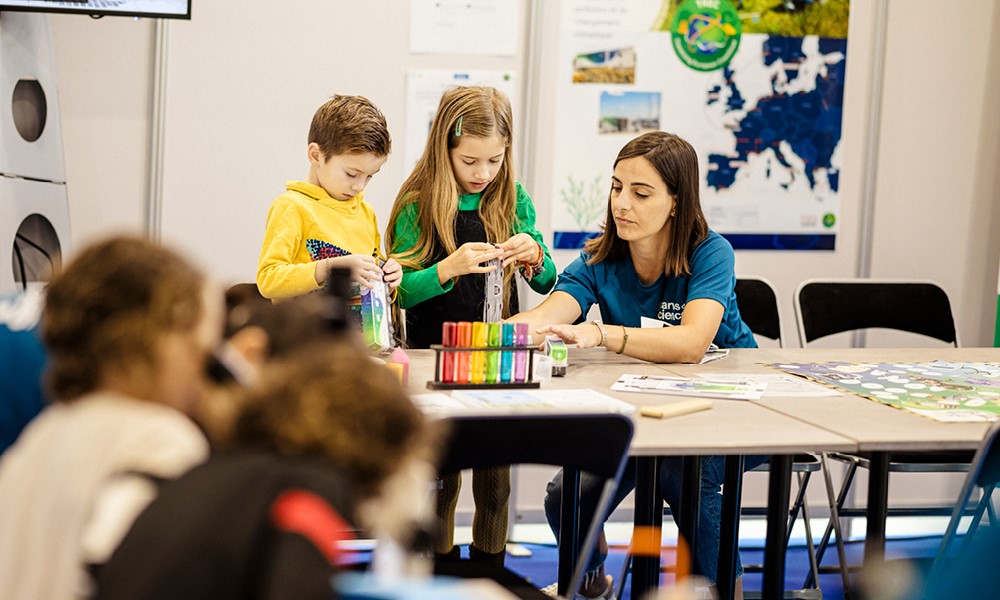
Every year in October, France celebrates La Fête de la Science – a week of activities to engage its citizens in science and technology.
This year’s theme was ‘Oceans of Knowledge’. Even in Grenoble – a city surrounded by mountains – it was the perfect opportunity to shine a light on EMBL’s scientific expedition TREC, a unique project to study European coastlines in collaboration with the Tara Ocean Foundation and the EMBRC.
Let’s dive into the different activities that EMBL Grenoble took part in!
Parvis des Sciences
Launched in 2007 as part of La Fête de la Science, the Parvis des Sciences is a popular event organised in Grenoble by the GIANT campus, of which EMBL Grenoble is a founding member. EMBL Grenoble and its partner institutes from the European Photon and Neutron (EPN) science campus – the European Radiation Synchrotron Facility (ESRF) and the Institut Laue Langevin (ILL) – shared a stand during the public day, which this year was attended by 1,450 people.
Volunteers from EMBL Grenoble facilitated various public engagement activities developed by EMBL’s Science Education and Public Engagement team to raise awareness of the TREC scientific expedition. One of the most popular activities involved folding models of the Advanced Mobile Laboratory (AML), EMBL’s unique laboratory on wheels. Children could also enjoy activities like colouring marine organisms and playing with a table-size version of the ‘Run, Scientist, Run’ game.
In addition, four sessions of the Nexus Island game were organised during the day, attended by families with children.
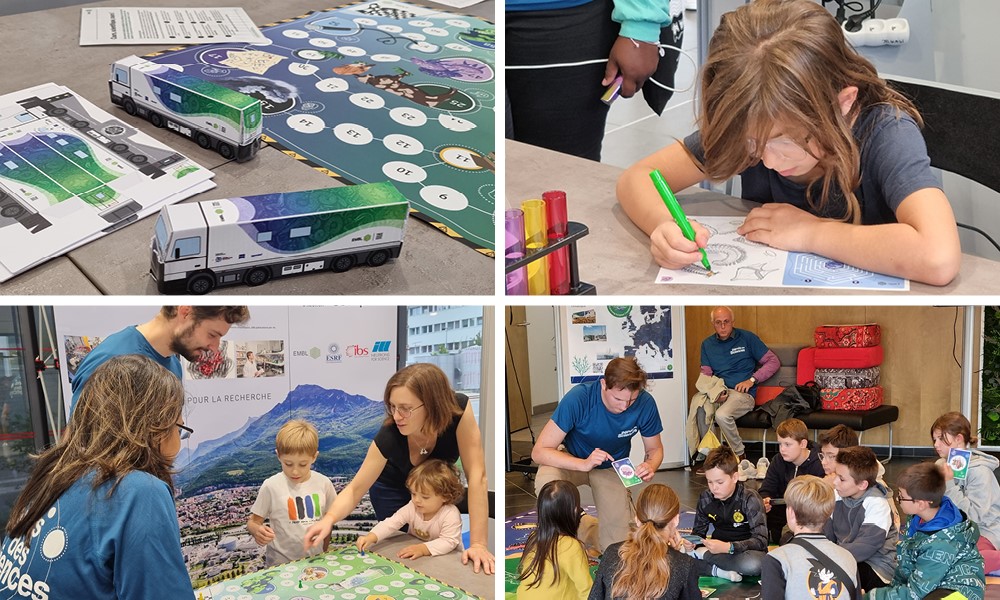
Our traditional activity, crystal fishing, was as popular as always. Visitors were invited to look at small crystallised proteins through EMBL Grenoble’s microscopes while being introduced to protein crystallisation – a structural biology technique that uses powerful X-rays produced by synchrotrons, such as the ESRF. The visitors were invited to try to fish out a protein crystal with a tiny nylon loop.
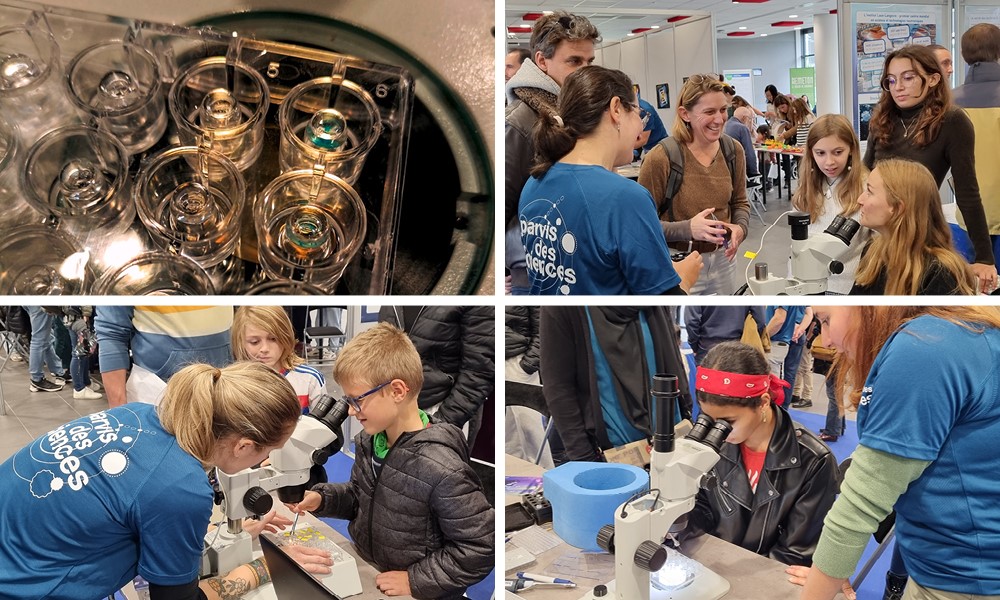
Maame Acquah, a visiting scientist at EMBL Grenoble and an EMBL/UNESCO fellow, participated in the event and made a video perfectly summarising this day.
“It’s been a great day at the Parvis des Sciences,” she wrote. “The EMBL Grenoble stand was amazing. From curious minds to investigating protein crystals and interactive games to building mobile laboratory replicas, it was indeed a festival of science!”
Special thanks go to all the EMBL volunteers who shared their enthusiasm for science during the Parvis des Sciences!

Johan Decelle’s talk on TREC and plankton research
As part of its ‘Midi by GIANT’ public talks series, the GIANT innovation campus organised a special conference for the Science Week, focusing on marine research. They invited marine biologist Johan Decelle, whose laboratory (LPCV – CEA/CNRS/UGA) is based in Grenoble, to talk about his research on phytoplankton and his involvement in TREC.
Decelle is a close collaborator of EMBL scientist Yannick Schwab, Head of the Electron Microscopy Core Facility at EMBL Heidelberg and one of the initiators of the Advanced Mobile Laboratory (AML). Decelle has been continuously involved in the TREC expedition, first during the pilot phase to develop the methods used in the AML to study marine microorganisms, and then at several sampling sites of the main expedition.
The public talk, which is now available on Youtube, was well attended, with the audience including many school students.
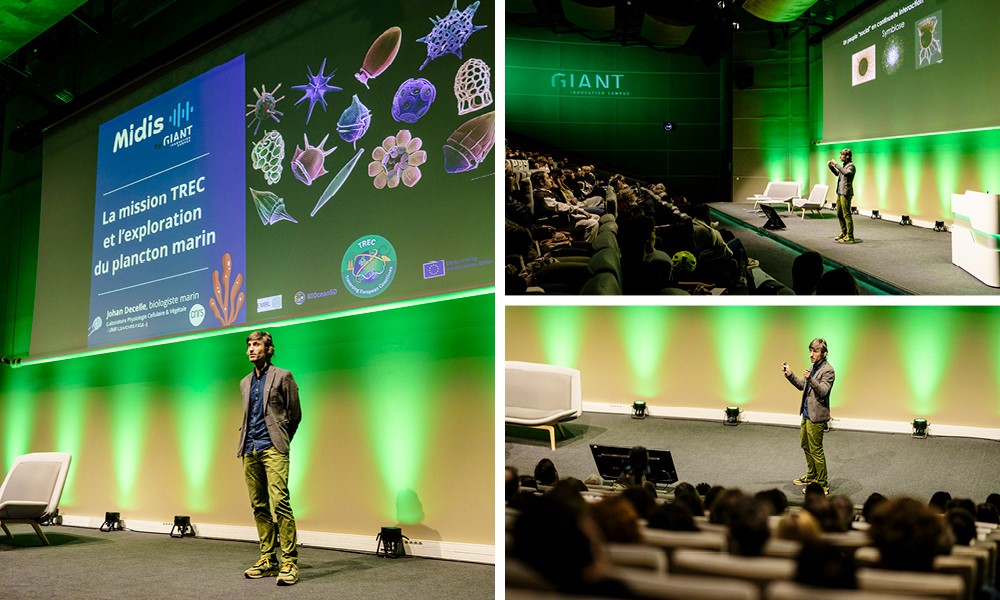
Nexus Island at the Cosmocité Open Day
Cosmocité is a science centre and planetarium that opened last year in the south of the Grenoble metropolitan area. The Cosmocité team organised an open day for the Science Week with various activities for the public. These included a Nexus Island session, where EMBL and the TREC expedition were also discussed. It was the first time that the Nexus Island game was offered to their visitors, thanks to a collaboration with EMBL.

Beyond the Science Week: Curiosity microscope workshop
On 9 October, EMBL Grenoble hosted a Plankton Planet workshop to train science teachers from three Grenoble Academy secondary schools in the use of the Curiosity microscope. After this workshop, organised by EMBL’s Science Education and Public Engagement team, each school was given one microscope to develop projects with their students.

This workshop was part of BIOcean5D, a project coordinated by EMBL and co-funded by Horizon Europe, which brings together 31 institutes to address pressing global challenges on marine biodiversity. Joining forces with TREC, BIOcean5D will generate data and knowledge to sustainably measure, understand, value, and predict how marine biodiversity changes across the dimensions of space, time, and human activities.

